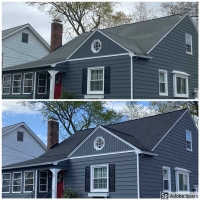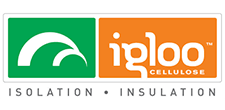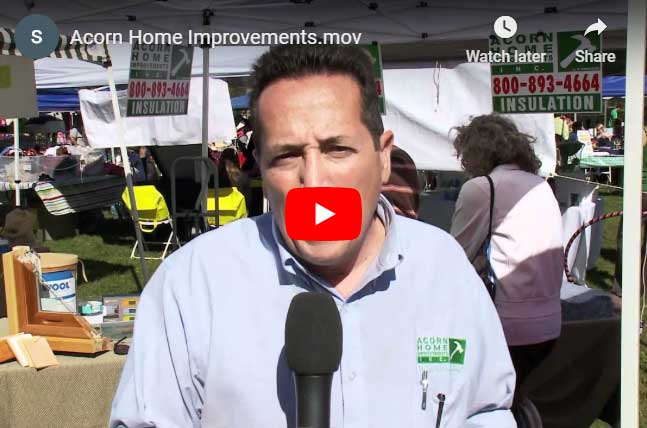Solar energy has been gaining popularity over the years and for good reason. Solar power is a clean and renewable energy source that can be used to generate electricity or heat water in homes. But how reliable is it in winter when there’s less sunlight?

Local roof replacement specialist Acorn Home Improvements takes a look at how solar energy is generated during winter, as well as the advantages and disadvantages of harnessing it.
How Solar Energy Is Generated in Winter
Solar energy is generated through the use of photovoltaic (PV) panels that convert sunlight into electricity. In winter, when there are fewer daylight hours and colder temperatures, these panels may produce as much energy as they would in summer. However, it’s still possible to generate some solar power in the winter months by using a higher-quality PV panel that can capture more light even on cloudy days.
For the most optimal results, it is advisable to pair solar panels with a solar battery system that can take up the slack during the winter months. You can also ensure that your home’s insulation is in tip-top shape to help carry the load in case of a limited power supply.
Advantages and Disadvantages
Although solar energy may not be as efficient in winter as it is during summer, a few advantages and disadvantages must be considered when using this renewable energy source.
- Pro: Cost Savings. The primary benefit of using solar power in winter is that it can save you money on your electricity bill. Solar energy is free, so you won’t have to pay for the energy produced by your PV panels. It is a significant cost-saving measure, especially if you live in an area with high electricity rates.
- Pro: Reliability. Solar power is a reliable source of energy because it’s not affected by power outages or other disruptions. This makes it an ideal option for homeowners who want to ensure that their electricity supply remains consistent in the winter months.
- Pro: Environmentally Friendly. Using solar power is an environmentally friendly choice because it reduces the number of greenhouse gases released into the atmosphere. This makes it a great option for those who are looking to reduce their carbon footprint and do their part in protecting the environment.
- Con: Reduced Efficiency. The main disadvantage of using solar power in winter is that it can be less efficient than during summer due to the shorter days and colder temperatures. This means that your PV panels may not generate as much electricity, so you might need to rely on other sources of energy to meet your needs.
Overall, solar power is a reliable and cost-effective way to generate electricity in the winter months. However, it’s important to keep in mind that this renewable energy source may not be as efficient during this season due to the reduced amount of sunlight.
If you’re interested in making the solar panels at your home as reliable as possible, contact Acorn Home Improvements today at (973) 386-9604 for a free consultation! You can also reach us online for a free estimate. Also, consider installing a solar battery system to ensure you can maximize the panels’ effectiveness even during winter. We even offer services such as siding and roof replacement that can help improve your home’s efficiency.























